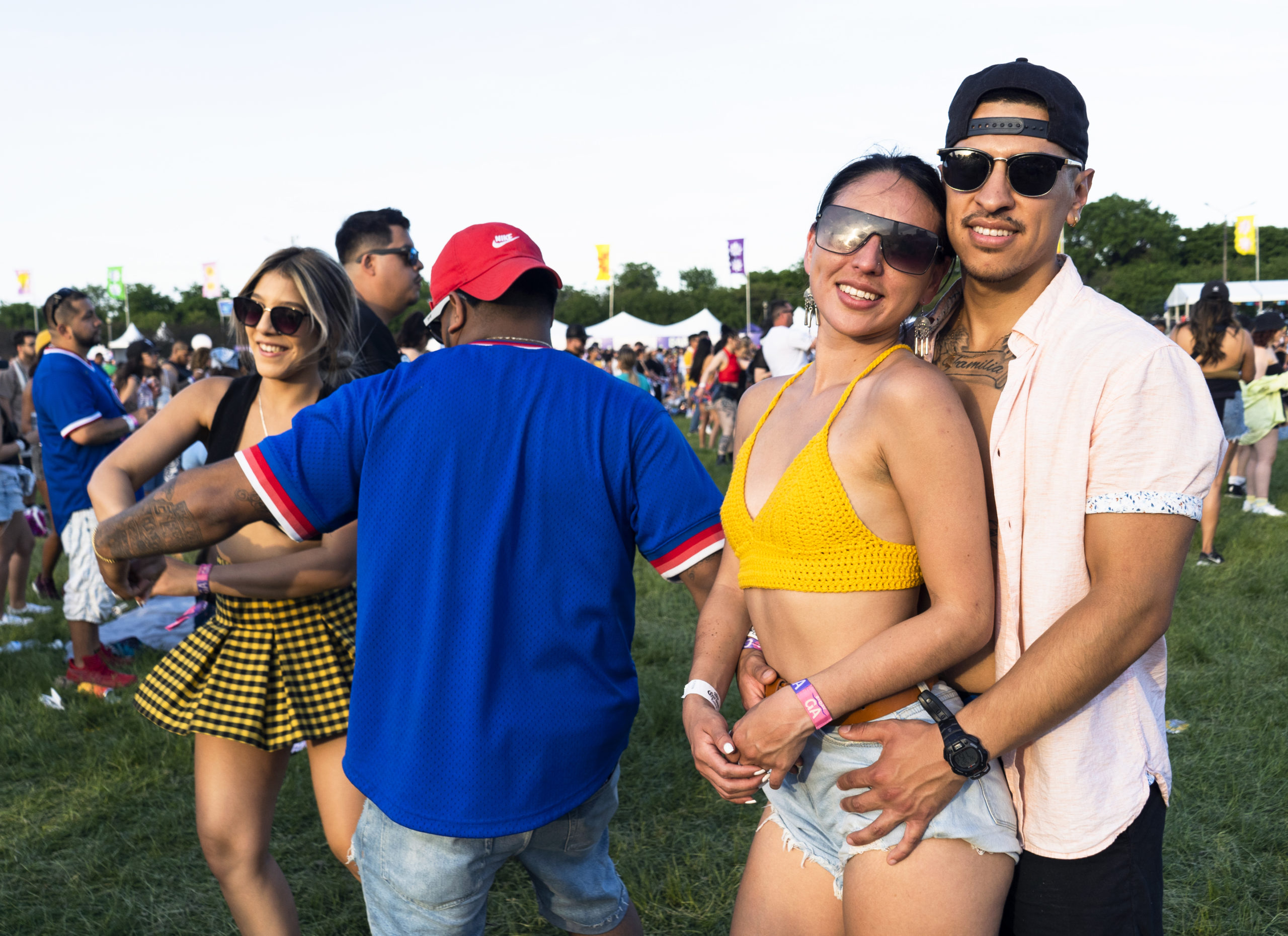It’s midday Saturday, May 28, and people are calmly making their way onto the festival grounds without any real hassles or long lines. Tokischa, a Dominican rapper who’s caused controversy for her sexually explicit lyrics as an openly bisexual woman, began her set by asking the crowd if they already had sex today. Then she danced and rapped the entirety of her songs without the typical lip-syncing-over-studio-recorded-tracks that many artists do these days.
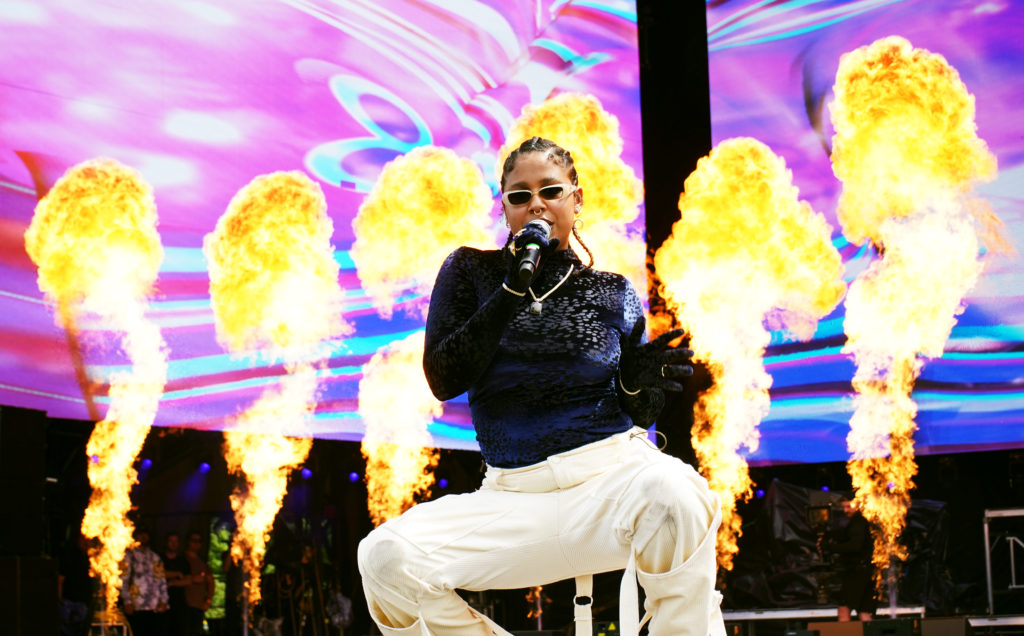
Halfway through her set, she unzipped the back of her pants and started to show off her body while breaking out into a semi-strip tease. Tokischa has been vocal about her past as a sex worker in the Dominican Republic—the Dominican government has recently sanctioned and banned some of her songs. Her musical expression demonstrates the way oppressed communities have historically used art to liberate themselves. In her case, she’s an Afro-Latina challenging her homeland’s misogyny and heteronormative gender roles.
La Gabi, another young Dominican rapper who performed early Sunday, shared her thoughts on censoring Afro-Latinas. “Every artist is going to make art their own way. Artists are going to make art based on what they’ve experienced in life. Artists want to express themselves freely and liberate themselves with art.”
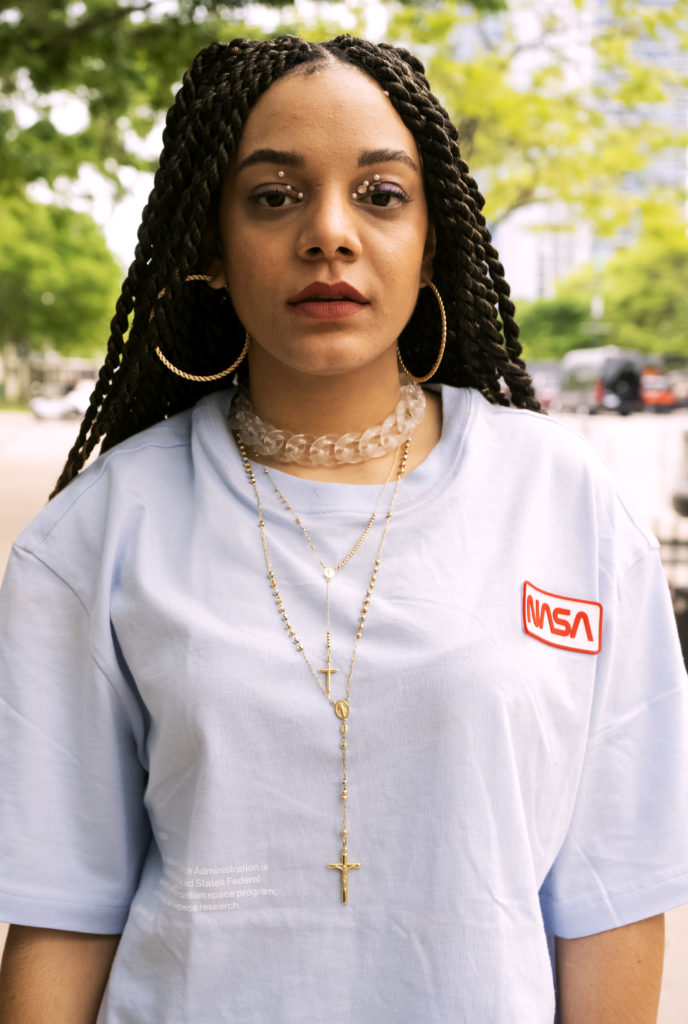
La Gabi’s a lyricist at heart and has a vocal range across the spectrum of musical styles that can match up against anyone else coming up right now. Her biggest flex is her versatility—La Gabi sings melodic soulful baladas, effortless rhymes on bass-heavy reggaeton melodies, and can rap harder than many over trap beats, while still maintaining substance behind her wordplay.
Attendees and journalists from as far as California, Miami, Boston, Philadelphia, and Milwaukee convened to talk about how they were looking forward to the unprecedented moment in which thousands of Latinos would take up space in Chicago’s downtown Grant Park.
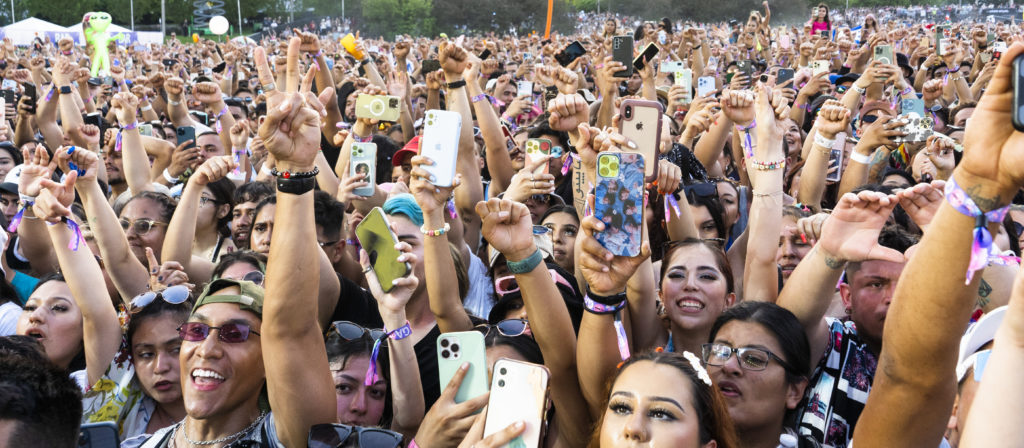
“You never think Chicago when you think about Latinos, you think New York, Miami. This is beautiful to see and I love that we’re here in Chicago too! I’m blessed [to be here] in Chicago,” said La Gabi in an interview for South Side Weekly. I heard this same outlook from a few other people visiting, too.
Despite the 2020 Census having reported that Latinos are the largest ethnic group in Chicago, it feels like our presence has been overshadowed by a lack of representation and the anti-Black Chiraq narratives driven by establishment politicians.
Having two Afro-Latino artists close out Saturday night in front of an audience of mostly Mexican descent illustrated how these moments connect different cultures and celebrate our diversity as a multiethnic group.
Right before Myke Towers performed, Mayor Lori Lightfoot made an appearance and got booed by many in the crowd of thousands of people shortly after she announced a citywide curfew in effect for people under eighteen-years-old.
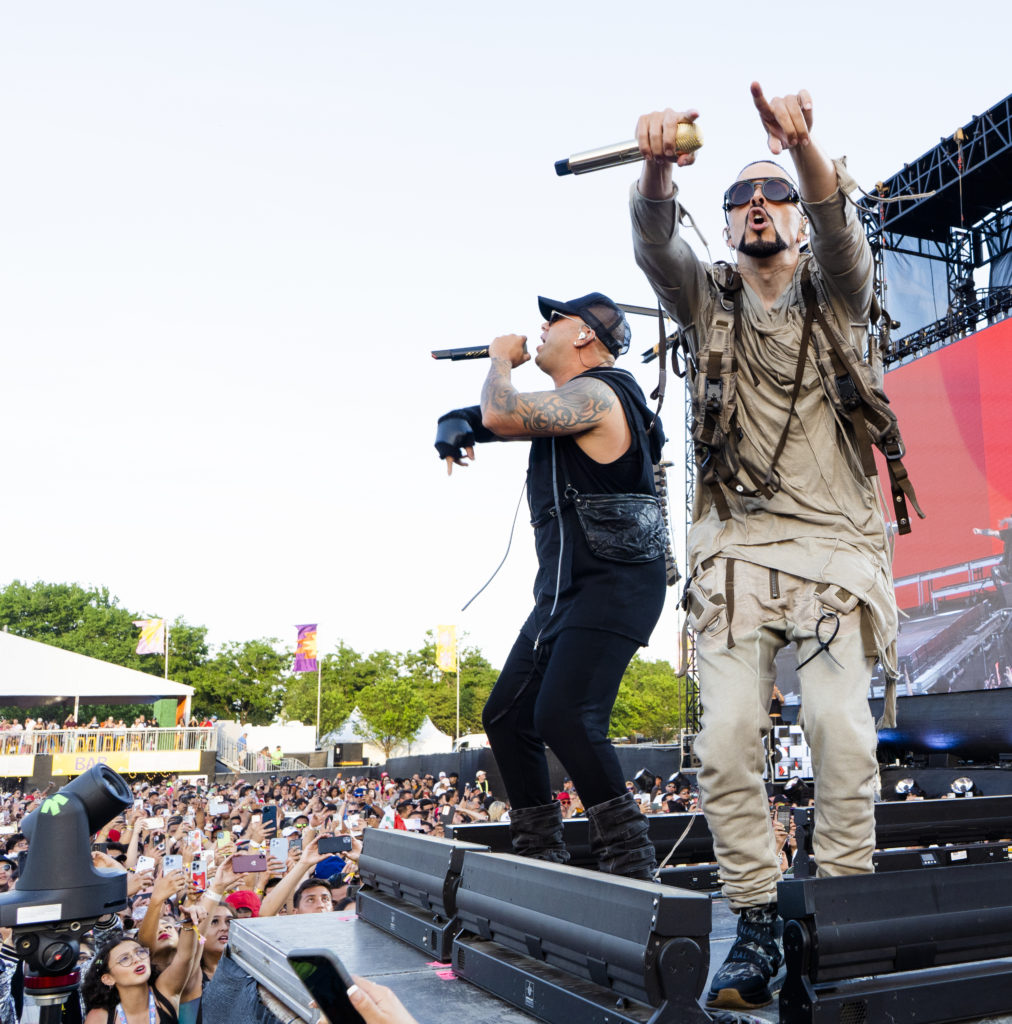
Myke Towers yelled “Viva México,” and Wisin of Wisin Y Yandel draped a Mexican flag on his back and shouted out Mexico on more than five occasions during his set.
Ozuna also shouted out Mexico, right before bringing Saturday night to a fever pitch when he asked the audience to raise their hands: “Manos arriba, Latinos, que se sienta.” (Latinos, put your hands up, you have to feel it.)
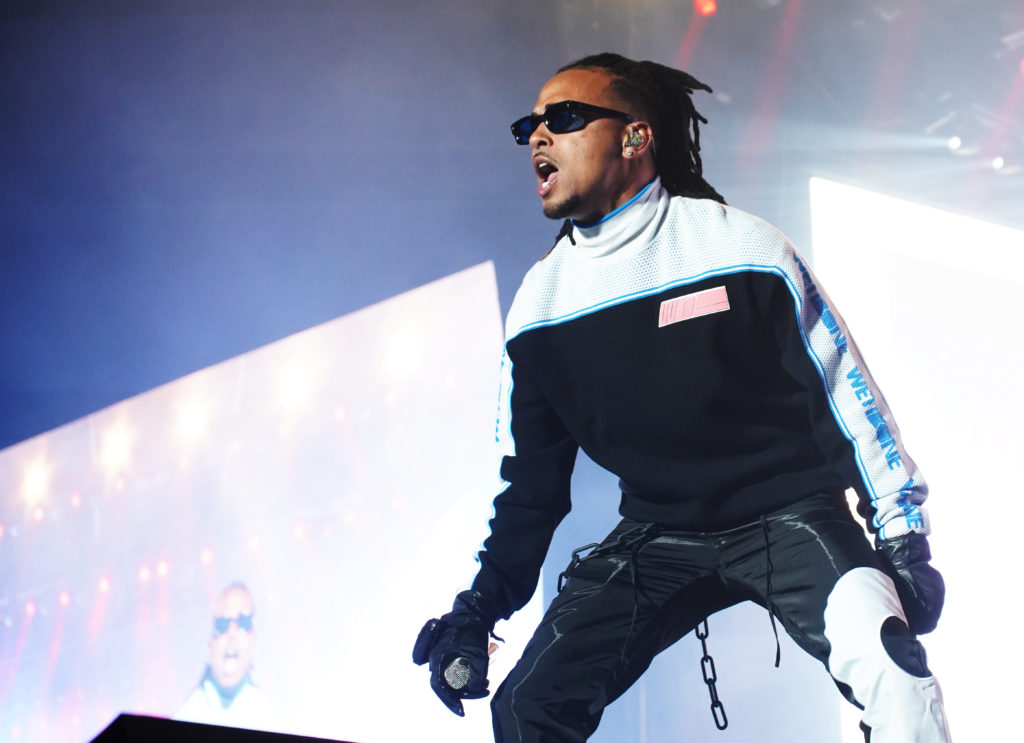
El Alfa’s energy was based heavily on sparks flying, flame effects, smoke machines and an enormous lighting system. Putting all the glam and glitz to the side, you can’t ever deny the hypnotic draw of hearing the mantra-like beginning to “La Mamá De La Mamá”.
Halfway through his set, he shouted out Mexico and made it clear that he loves every other Spanish-speaking country in the western hemisphere, but reiterated his awareness that the crowd was mostly of Mexican descent as he smiled and kept the fast-paced Dominican energy at an all-time high.
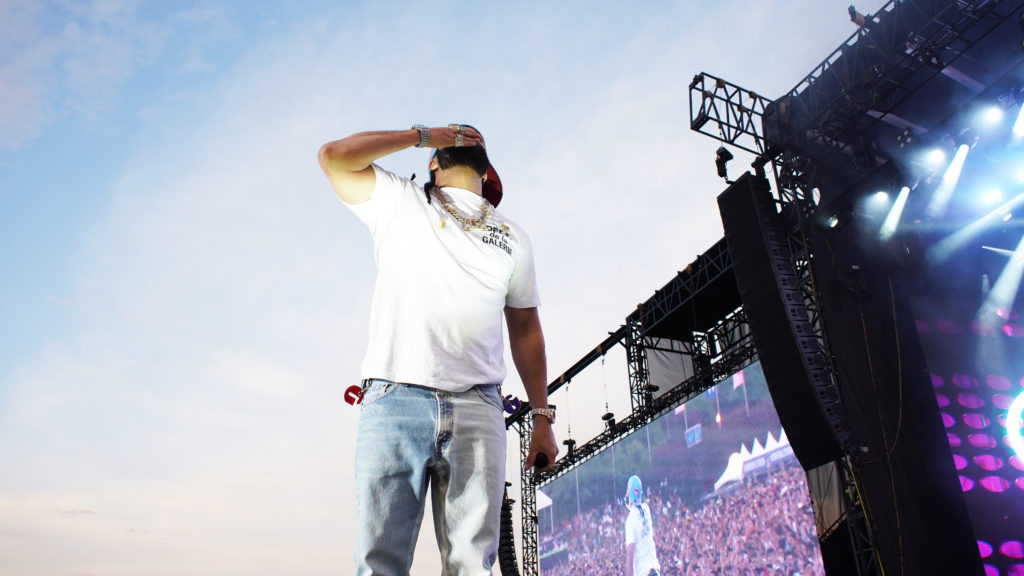
“I’m Mexican, and to have us and our genre in this kind of festival is crazy,” said Jesus Ortiz Paz, the lead singer of Mexican band Fuerza Regida. “For a Mexican to be on the same stage as J Balvin is crazy, but we’re here to stay.”
The entire band had a clear understanding of the significance behind bringing powerhouses from both Mexican and Caribbean genres together.
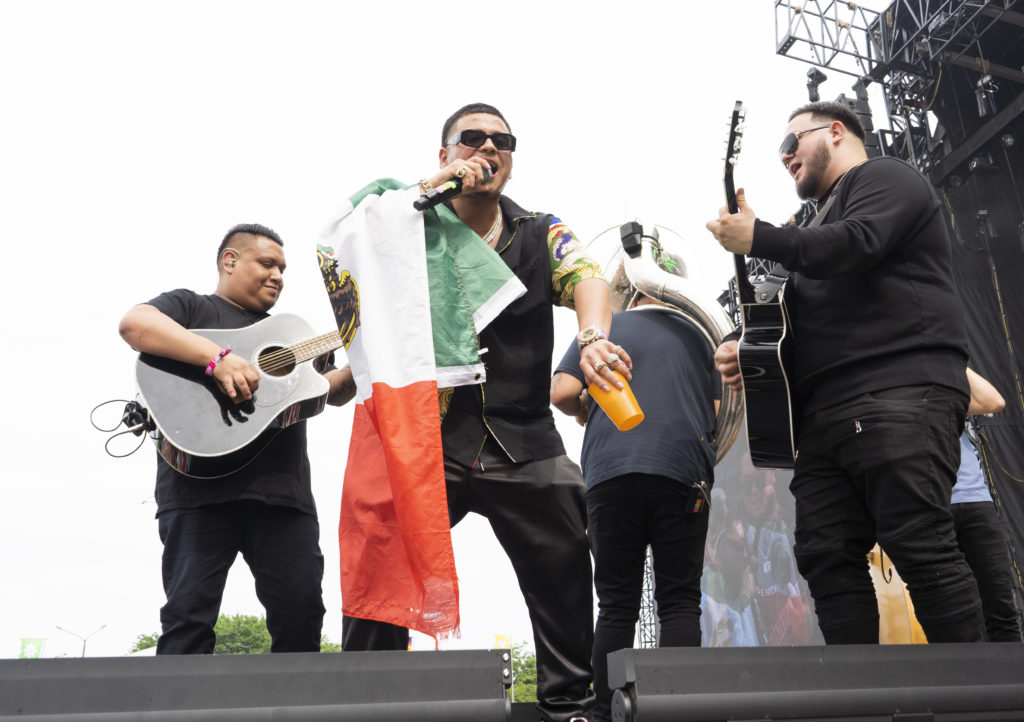
“To have a Mexican next to reggaeton artists is good because before [it used to be that] people that listened to reggaeton wouldn’t be into Mexican music, and Mexicans used to be like, ‘I don’t like reggaeton’… now we’re coming together. We’re going to be bigger and stronger,” Ortiz Paz said. “It’s wild how our genre has grown this much.”
Ortiz Paz also talked about the roots and motivation for his music. “We grew up playing in backyards and quinceñeras for a hundred bucks an hour. Fuerza Regida comes from the barrio. I’m going to write about what I see and what I live in the streets. Just like rap songs, that [life] that the rappers talk about, we talk about that in our corridos,” he said.
During Fuerza Regida’s set on Sunday, they played recently deceased Chicago drill rapper King Von’s “Crazy Story” in the middle of his set while lighting a joint, showing he is in tune with the music emerging from Chicago’s Black community, too.
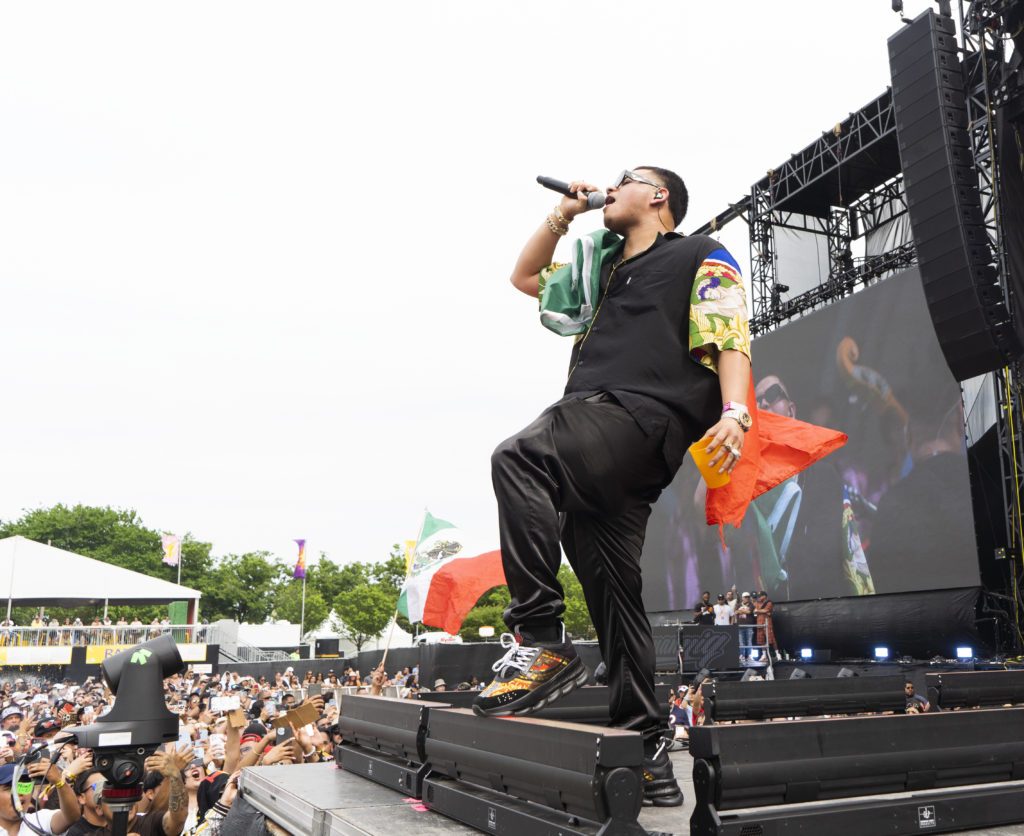
Fuerza Regida reflects the duality that many children of Mexican immigrants experience—being proud of Mexican heritage and culture but at the same time identifying with the parallels of struggle illustrated by the Black experience through rap music. If Fuerza Regida were to ever explore crossing over, Ortiz Paz said during an interview, he would want it with Lil Baby. He hinted at a collaboration currently brewing with the very well-known Mexican rap group Santa Fe Klan.
Fuerza Regida ended their set with a moment of silence for the children and all the shooting victims of Uvalde, Texas. The same sentiment of acknowledging the recent tragedy was shared by DJ Dynamic, one of the resident DJs hosting throughout the weekend. “It was just a moment thing, it was a respect thing. It was the right thing to do,” said DJ Dynamic, who is also the official DJ of the San Francisco 49ers.
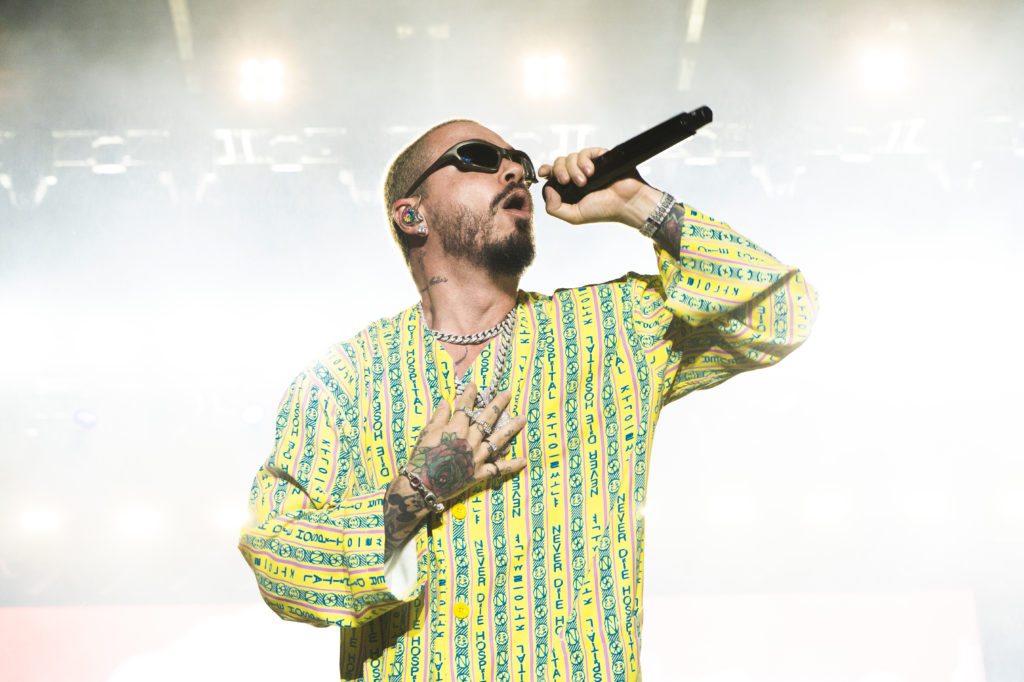
J Balvin did his thing. His performance started with “Mi Gente,” which shares the name of the iconic song released in 1975 written by Johnny Pacheco and interpreted by Hector Lavoe.The term “Mi gente” (My people) has often been used in songs by artists like Proyecto Uno, Nicky Jam and Kumbia Kings as a means of encouraging unity. That Sunday evening, J Balvin met up with La Gabi at an afterparty and praised her for her artistry.
Sueños not only brought Latinos from all over Chicago to share space, but also provided an opportunity for artists who might not normally cross paths to meet up and connect with each other. The combination of diverse artists ranging from every Spanish-speaking skin tone truly represented the spectrum of who we are as a community.
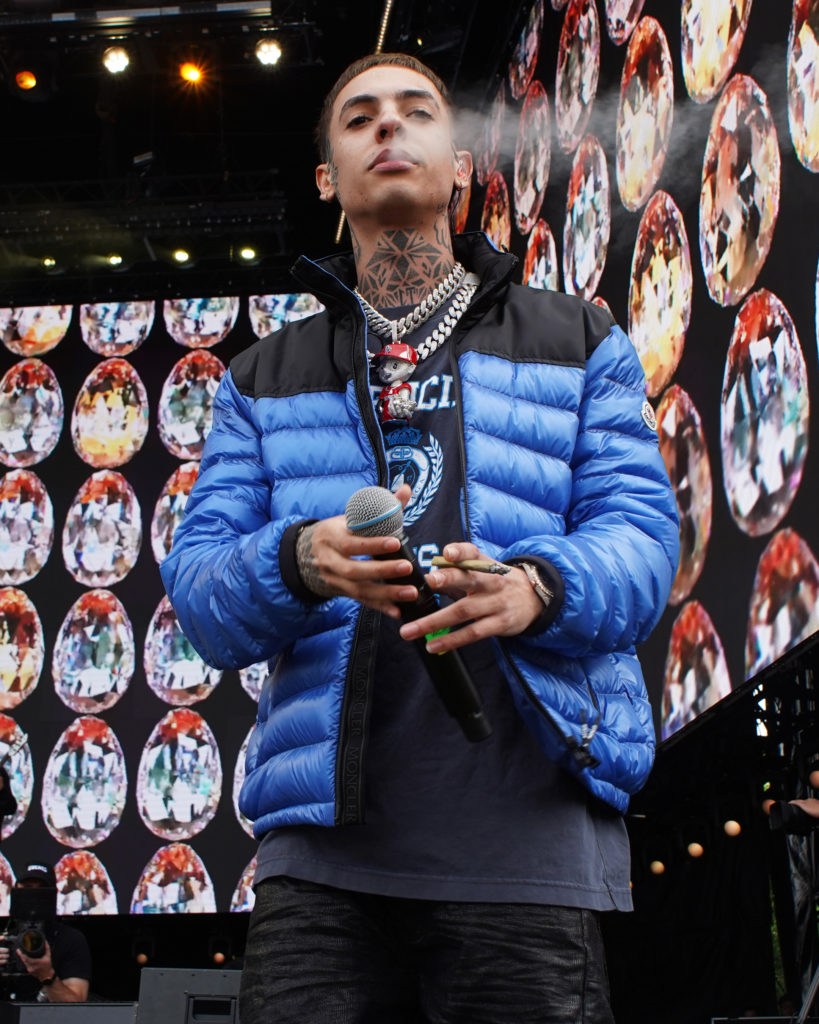
The same couples that showed up for J Balvin on Sunday were singing the lyrics word-for-word to Mexican singer Natanael Cano’s famous “Disfruto lo Malo” song. Our language, our rhythms, and our styles took up space in a park that the mayor called the ’crown jewel’ of the city a few weeks ago.
It’s worth understanding what our communities are going through on a daily basis across the city this summer too. Over fifty people were shot, nine fatally over the Memorial Day weekend, the weekend of the festival. But the festival was not interrupted by incidents of gun violence. It was almost as if attendees knew the importance of having the entire community convene downtown to celebrate their culture—we couldn’t afford to ruin our moment by behaving like the stereotypes news outlets and politicians have made us out to be lately.
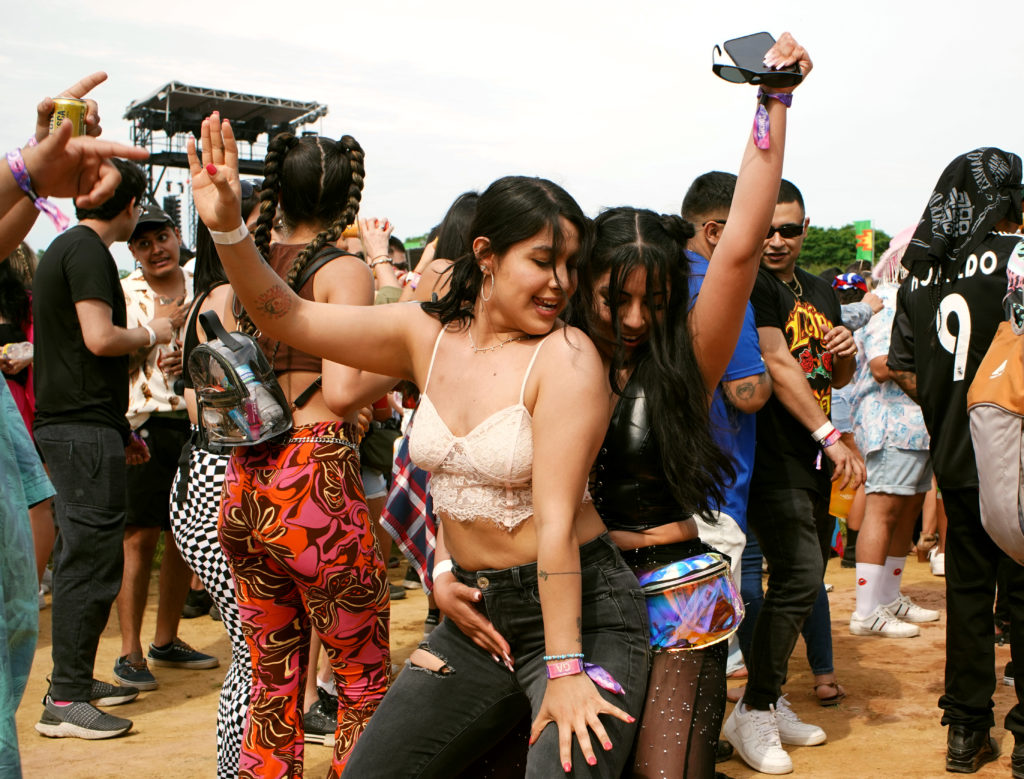
Our unity at Chicago’s epicenter made our collective strength visible to each other and reminded us all that we belong here too and this is also our city. The challenge now lies in transitioning that cultural power into political and social and economic power. That’s the real Sueño to me.
“No te rajes. If you have a dream, go for it. Don’t give up on your dream,” said Ortiz Paz.
The name Sueños itself carries strength behind the symbolism of its meaning: dreams. The very reason several generations of immigrants have arrived in this country. The American Dream.
Mateo Zapata is a South Side-raised creative of Colombian/Chilean descent working at the intersection of photojournalism, film, art production and hip-hop. He last contributed a reflection about police shooting victim Miguel Vega.

